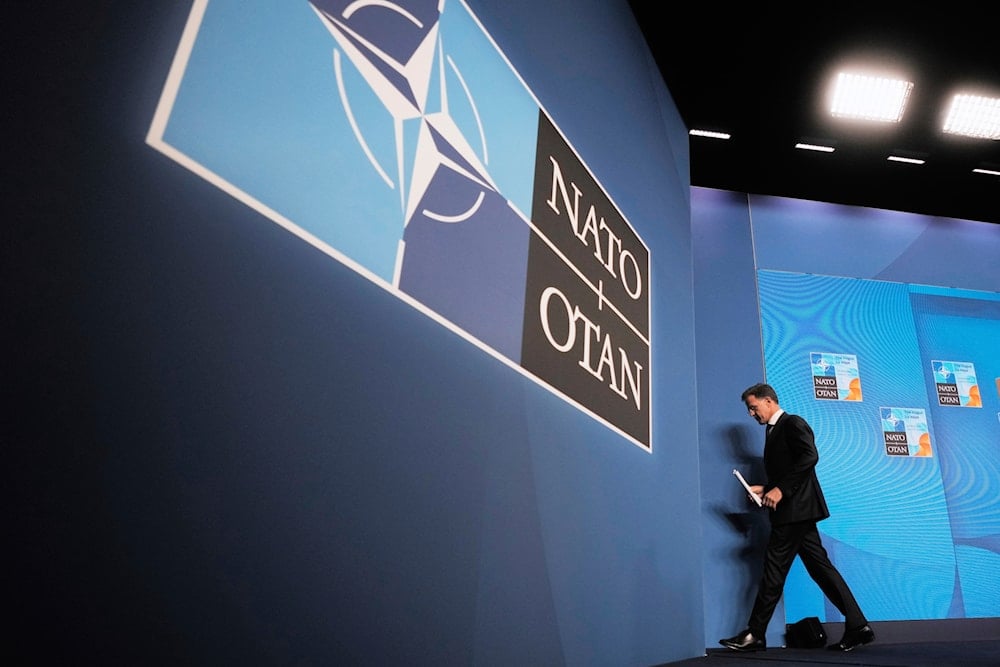NATO aims for 5% defense spending in response to Ukraine war
NATO Secretary General Mark Rutte calls for increased defense spending to 5% of GDP amid escalating threats from Russia, a ceasefire between Iran and "Israel", and ongoing pressure in Ukraine.
-

NATO Secretary General Mark Rutte leaves a media conference ahead of the NATO summit in The Hague, Netherlands, on June 23, 2025. (AP Photo/Markus Schreiber)
NATO Secretary General Mark Rutte said it was "not a difficult thing" to reach consensus among members on raising defense spending to 5% of GDP, citing the ongoing war in Ukraine. On the eve of the alliance’s summit, Rutte told The Guardian that all 32 member states had agreed to increased spending due to the critical security landscape shaped by the war.
The new commitment includes 3.5% of GDP dedicated to core defense, with an additional 1.5% allocated to broader security measures such as cybersecurity and intelligence. "The security situation has changed so much," Rutte stated, adding, "You now need to deliver to the collective endeavour… you better have your stuff there."
The summit follows a ceasefire between Iran and "Israel", announced by US President Donald Trump, after a final Iranian volley was launched against Beer al-Sabe, recording several casualties.
It is worth noting that Rutte appeared to support the US strike on Iranian nuclear facilities, calling it a "decisive action" that opened the door to diplomacy, warning that any Iranian retaliation targeting NATO would trigger a "devastating" alliance reaction.
Despite the developments in the Middle East, Rutte dismissed fears that Ukraine would be sidelined, saying, "I’m very optimistic about supporting Ukraine."
Trump’s NATO stance and European concerns
On the other hand, Rutte also addressed concerns over the US commitment to NATO, affirming that President Donald Trump remains "absolutely" supportive of the alliance. He urged European nations to focus on their defence contributions, adding, "Please be a bit less worried… [The US] are committed, but they also expect us to spend more."
Spain has pushed back against the 5% GDP goal, calling it “unreasonable.” With current spending at just 1.3%, Madrid has proposed a 2.1% target, citing the cost-efficiency of its domestic defence industry. Despite internal friction, Rutte maintained that there would be no exemptions, though the summit’s statement grants Spain “flexibility” in meeting its commitments.
Poland criticized Spain’s stance as undermining NATO unity, while Belgium also hinted at requesting special consideration. Rutte downplayed these tensions, asserting that all members are committed to their capability targets.
While the NATO-Ukraine Council will not convene this year, Ukrainian President Volodymyr Zelensky is set to attend an informal dinner hosted by the Dutch king, facing growing challenges as Russian forces continue to make advances.

 3 Min Read
3 Min Read











